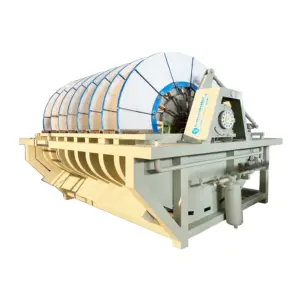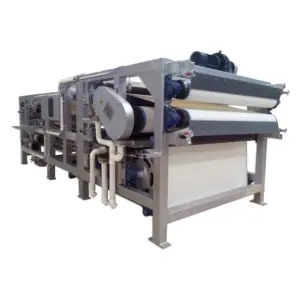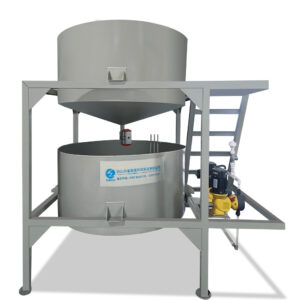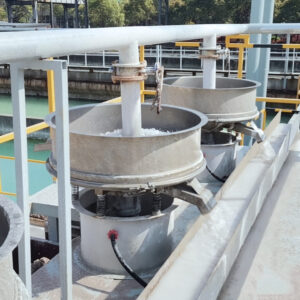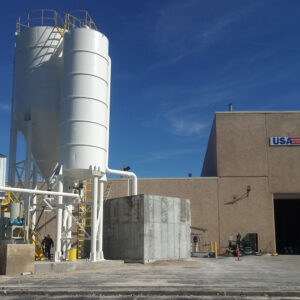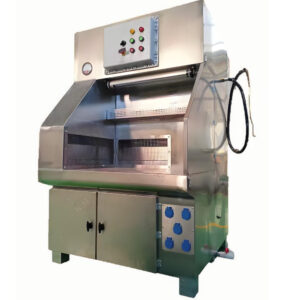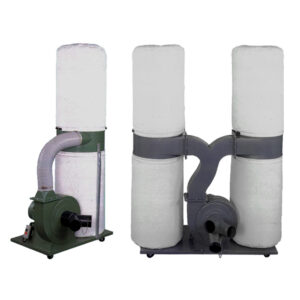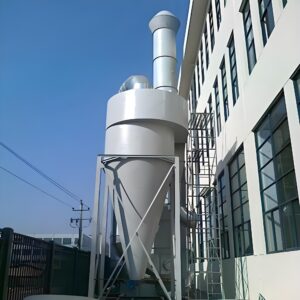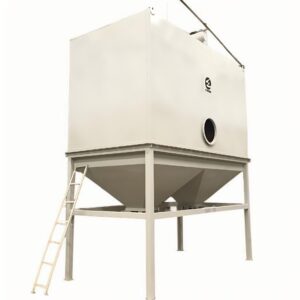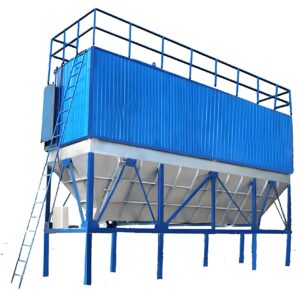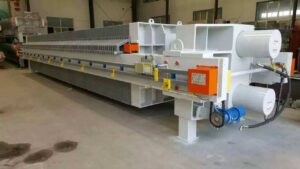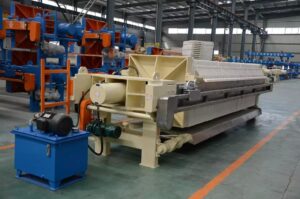In the rapidly evolving landscape of industrial automation and process control, dosing system technology suppliers play a crucial role in ensuring precision, efficiency, and reliability across various sectors. As we approach 2025, the demand for advanced dosing solutions continues to grow, driven by the need for improved accuracy, reduced waste, and enhanced productivity. This article explores the top dosing system technology suppliers expected to lead the industry in 2025, examining their innovative offerings and the impact they're making on diverse applications from water treatment to pharmaceutical manufacturing.
The future of dosing system technology is shaped by several key factors, including the integration of smart technologies, the push for sustainability, and the increasing complexity of industrial processes. Leading suppliers are responding to these challenges with cutting-edge solutions that incorporate IoT connectivity, advanced analytics, and eco-friendly designs. As we delve into the top players in this field, we'll uncover the trends and technologies that are set to define the dosing system landscape in the coming years.
As we transition into our exploration of the top dosing system technology suppliers for 2025, it's important to recognize the transformative power of these technologies. From ensuring clean water supplies to enabling precise drug formulations, dosing systems are the unsung heroes of many critical processes. The suppliers we'll discuss are at the forefront of innovation, pushing the boundaries of what's possible in fluid handling and chemical dosing.
The global dosing systems market is projected to reach $7.9 billion by 2025, with a compound annual growth rate of 6.8% from 2020 to 2025, driven by increasing demand for water and wastewater treatment solutions and the growing automation in various industries.
What innovations are driving the future of dosing system technology?
The future of dosing system technology is being shaped by a wave of innovations that promise to revolutionize the way industries handle precise fluid management. At the forefront of these advancements are smart dosing systems that leverage the power of the Internet of Things (IoT) and artificial intelligence. These cutting-edge solutions offer real-time monitoring, predictive maintenance, and self-adjusting capabilities that optimize dosing processes with minimal human intervention.
Key innovations in the field include advanced sensor technologies that provide unprecedented accuracy in flow measurement, adaptive control algorithms that respond to changing process conditions, and modular designs that allow for easy scalability and customization. Additionally, there's a growing emphasis on developing eco-friendly dosing solutions that reduce chemical consumption and minimize environmental impact.
PORVOO, a leading name in dosing system technology, has introduced a groundbreaking AI-driven dosing system that can reduce chemical usage by up to 30% while improving process efficiency by 25%.
The integration of these technologies is not just improving the precision of dosing operations but also contributing to significant cost savings and enhanced safety in industrial processes. As we look towards 2025, the dosing system suppliers who are investing heavily in these innovations are positioning themselves as industry leaders.
| Innovation | Impact on Dosing Systems |
|---|---|
| IoT Integration | Real-time monitoring and remote control |
| AI and Machine Learning | Predictive maintenance and process optimization |
| Advanced Sensors | Improved accuracy and reliability |
| Modular Design | Enhanced scalability and customization |
| Eco-friendly Solutions | Reduced chemical usage and environmental impact |
In conclusion, the innovations driving the future of dosing system technology are centered around smart, connected, and sustainable solutions. These advancements are not only improving the performance of dosing systems but also addressing broader industry challenges such as resource efficiency and environmental stewardship.
How are dosing system suppliers addressing Industry 4.0 challenges?
The advent of Industry 4.0 has brought both opportunities and challenges for dosing system suppliers. As industrial processes become increasingly interconnected and data-driven, suppliers are adapting their offerings to meet the new demands of smart factories and automated production lines. The key focus is on developing dosing systems that can seamlessly integrate with broader industrial automation ecosystems.
Suppliers are addressing Industry 4.0 challenges by incorporating advanced communication protocols, such as OPC UA and MQTT, into their dosing systems. This enables seamless data exchange with other industrial equipment and supervisory control systems. Additionally, they are developing cloud-based platforms that allow for remote monitoring, control, and data analytics of dosing operations across multiple sites.
Leading dosing system technology suppliers are now offering systems with built-in edge computing capabilities, allowing for real-time data processing and decision-making at the point of operation, reducing latency and improving response times in critical dosing applications.
Another significant development is the implementation of digital twin technology in dosing systems. This allows operators to simulate and optimize dosing processes in a virtual environment before implementing changes in the physical system, greatly reducing the risk of costly errors and downtime.
| Industry 4.0 Feature | Benefit to Dosing Systems |
|---|---|
| Cloud Connectivity | Remote monitoring and management |
| Edge Computing | Real-time processing and control |
| Digital Twin Technology | Process optimization and risk reduction |
| Advanced Analytics | Predictive maintenance and performance insights |
| Cybersecurity Measures | Protection against cyber threats |
In conclusion, dosing system suppliers are rising to the Industry 4.0 challenge by developing intelligent, connected solutions that offer unprecedented levels of control, visibility, and efficiency. These advancements are not only improving the performance of individual dosing systems but also enabling their seamless integration into the wider smart factory ecosystem.
What role do dosing systems play in water treatment and environmental protection?
Dosing systems play a critical role in water treatment and environmental protection, serving as the backbone of processes that ensure clean water supplies and minimize pollution. In water treatment facilities, precision dosing of chemicals such as coagulants, flocculants, and disinfectants is essential for producing safe drinking water and treating wastewater to environmentally acceptable standards.
The importance of accurate dosing in these applications cannot be overstated. Over-dosing can lead to excessive chemical use, increased costs, and potential environmental harm, while under-dosing can result in inadequate treatment and health risks. Leading dosing system technology suppliers are developing solutions that address these challenges with unprecedented accuracy and reliability.
Recent advancements in dosing system technology have enabled water treatment plants to achieve up to 99.9% reduction in contaminants while reducing chemical consumption by 15-20%, significantly improving both treatment efficacy and environmental sustainability.
In the realm of environmental protection, dosing systems are crucial for controlling pH levels in industrial effluents, neutralizing harmful substances, and ensuring compliance with stringent environmental regulations. Suppliers are focusing on developing robust, chemical-resistant dosing systems that can handle a wide range of corrosive and aggressive substances commonly found in industrial waste streams.
| Application | Dosing System Impact |
|---|---|
| Drinking Water Treatment | Precise disinfection and quality control |
| Wastewater Treatment | Efficient removal of pollutants |
| Industrial Effluent Control | pH adjustment and neutralization |
| Nutrient Removal | Reduction of phosphates and nitrates in water bodies |
| Desalination | Accurate dosing of anti-scalants and cleaning chemicals |
In conclusion, dosing systems are indispensable tools in the fight for clean water and environmental protection. As regulations become stricter and the demand for water resources grows, the role of advanced dosing technologies in ensuring sustainable water management will only become more critical.
How are dosing system suppliers enhancing precision in pharmaceutical manufacturing?
In the pharmaceutical industry, where precision and consistency are paramount, dosing system suppliers are pushing the boundaries of accuracy and reliability. The stakes are incredibly high in this sector, as even minor variations in ingredient dosing can have significant impacts on drug efficacy and safety. Recognizing this, suppliers are developing specialized dosing solutions tailored to the unique demands of pharmaceutical manufacturing.
One of the key advancements in this area is the development of ultra-precise peristaltic pumps capable of dosing micro-liter volumes with exceptional accuracy. These pumps are designed to handle a wide range of viscosities and are often equipped with advanced flow sensors that provide real-time feedback for closed-loop control.
State-of-the-art pharmaceutical dosing systems now boast accuracy levels of up to ±0.1%, with some specialized systems achieving even higher precision for critical applications such as cell culture media preparation and bioreactor feed control.
Another significant trend is the integration of single-use technologies in pharmaceutical dosing systems. These disposable components eliminate the need for cleaning and validation between batches, reducing the risk of cross-contamination and improving overall efficiency in drug manufacturing processes.
| Pharmaceutical Dosing Innovation | Benefit |
|---|---|
| Ultra-precise Peristaltic Pumps | Micro-liter accuracy for sensitive formulations |
| Single-use Components | Reduced contamination risk and faster changeovers |
| In-line Analytical Sensors | Real-time quality control and process optimization |
| Aseptic Dosing Systems | Maintenance of sterile conditions during drug production |
| Multi-channel Dosing Platforms | Simultaneous handling of multiple ingredients |
In conclusion, dosing system suppliers are playing a crucial role in advancing pharmaceutical manufacturing by providing solutions that meet the industry's exacting standards for precision, sterility, and flexibility. These innovations are not only improving the quality and safety of pharmaceutical products but also contributing to more efficient and cost-effective manufacturing processes.
What advancements are being made in chemical dosing for industrial processes?
Chemical dosing in industrial processes is undergoing a significant transformation, driven by the need for greater efficiency, safety, and environmental responsibility. Dosing system technology suppliers are at the forefront of this change, developing innovative solutions that address the complex challenges of modern industrial chemical management.
One of the most notable advancements is the development of intelligent dosing systems that can automatically adjust chemical feed rates based on real-time process parameters. These systems use a combination of advanced sensors, predictive algorithms, and feedback control to optimize chemical usage, reducing waste and improving process consistency.
intelligent chemical dosing system technology has demonstrated the ability to reduce chemical consumption by up to 40% in certain industrial applications, while simultaneously improving product quality and reducing environmental impact.
Another area of focus is the development of multi-component dosing systems that can handle complex chemical formulations with high precision. These systems are particularly valuable in industries such as polymer production, where the exact ratio of multiple ingredients is critical to the final product properties.
| Chemical Dosing Advancement | Industrial Application |
|---|---|
| Intelligent Feed Control | Optimized chemical usage in process industries |
| Multi-component Dosing | Precise formulation in polymer and specialty chemical production |
| Explosion-proof Dosing Systems | Safe chemical handling in hazardous environments |
| Corrosion-resistant Materials | Extended equipment life in aggressive chemical applications |
| Automated Dilution Systems | Accurate preparation of chemical solutions |
In conclusion, the advancements in chemical dosing for industrial processes are focused on improving precision, efficiency, and safety while reducing environmental impact. These innovations are enabling industries to achieve higher levels of process control, product quality, and operational efficiency.
How are dosing system suppliers addressing the challenges of viscous and non-Newtonian fluids?
Handling viscous and non-Newtonian fluids presents unique challenges in dosing applications, requiring specialized solutions from technology suppliers. These fluids, which include materials like polymers, adhesives, and certain food products, often exhibit complex flow behaviors that can confound traditional dosing methods.
Dosing system suppliers are responding to these challenges with innovative pump designs and control strategies. Progressive cavity pumps and gear pumps are being optimized for high-viscosity fluids, offering smooth, pulsation-free flow even with extremely thick materials. Additionally, suppliers are developing advanced screw feeders and auger dosing systems for handling high-viscosity pastes and gels.
Recent innovations in dosing technology have enabled the accurate metering of fluids with viscosities up to 1,000,000 cP, opening new possibilities for precision manufacturing in industries such as electronics and advanced materials.
Control systems for these specialized dosing pumps are also evolving, incorporating sophisticated algorithms that can adapt to the changing rheological properties of non-Newtonian fluids. These smart systems can adjust pump speed and pressure in real-time to maintain consistent flow rates, even as the fluid's viscosity changes due to temperature or shear stress.
| Viscous Fluid Dosing Solution | Application |
|---|---|
| Progressive Cavity Pumps | High-precision dosing of adhesives and sealants |
| Gear Pumps with Heating Jackets | Temperature-controlled dosing of waxes and resins |
| Screw Feeders | Accurate metering of high-viscosity pastes |
| Pulsation-free Flow Technology | Consistent dosing of shear-sensitive fluids |
| Adaptive Control Algorithms | Real-time adjustment for non-Newtonian behavior |
In conclusion, dosing system suppliers are making significant strides in addressing the challenges posed by viscous and non-Newtonian fluids. These advancements are enabling more precise and reliable dosing in a wide range of industries, from food processing to advanced manufacturing.
What impact is sustainability having on dosing system design and implementation?
Sustainability is becoming an increasingly important factor in the design and implementation of dosing systems across all industries. As environmental concerns take center stage, dosing system technology suppliers are innovating to create more eco-friendly solutions that reduce resource consumption and minimize environmental impact.
One of the key areas of focus is energy efficiency. Suppliers are developing dosing pumps with high-efficiency motors and variable speed drives that can significantly reduce power consumption. Additionally, there's a growing trend towards the use of regenerative braking systems in large-scale dosing applications, which can recover and reuse energy that would otherwise be wasted.
Leading dosing system manufacturers are now producing pumps that are up to 30% more energy-efficient than previous models, with some systems incorporating energy recovery features that can reduce overall power consumption by up to 50% in certain applications.
Water conservation is another critical aspect of sustainable dosing system design. Suppliers are developing closed-loop systems that recirculate and reuse water in dosing processes, dramatically reducing water consumption in industries such as textile manufacturing and food processing.
| Sustainable Dosing Feature | Environmental Benefit |
|---|---|
| High-efficiency Motors | Reduced energy consumption |
| Closed-loop Water Systems | Minimized water usage |
| Precision Dosing Controls | Decreased chemical waste |
| Bio-based Materials | Reduced reliance on petroleum-based plastics |
| Modular Design | Extended equipment lifespan and easier recycling |
In conclusion, sustainability is driving significant changes in dosing system design and implementation. Suppliers are not only focusing on the immediate performance of their systems but also considering the long-term environmental impact. This shift towards more sustainable dosing technologies is helping industries reduce their ecological footprint while often realizing cost savings through improved efficiency.
Conclusion
As we look towards 2025, the landscape of dosing system technology is set for remarkable advancements driven by innovation, sustainability, and the demands of Industry 4.0. The top suppliers in this field are not just responding to current needs but are actively shaping the future of precision fluid handling across a wide range of industries.
From the integration of AI and IoT in smart dosing systems to the development of ultra-precise solutions for pharmaceutical manufacturing, the innovations we've explored demonstrate the critical role that dosing technology plays in modern industrial processes. The push towards more sustainable and energy-efficient designs is not only benefiting the environment but also offering significant cost savings and improved operational efficiency for end-users.
The challenges of handling complex fluids, meeting stringent regulatory requirements, and integrating with broader automation systems are being met with ingenuity and technological prowess. As we've seen, suppliers are developing specialized solutions for everything from viscous non-Newtonian fluids to corrosive chemicals, ensuring that industries have the tools they need to optimize their processes and maintain competitive edges.
Looking ahead, we can expect to see even greater integration of dosing systems with digital platforms, enabling unprecedented levels of control, monitoring, and predictive maintenance. The continued focus on sustainability will likely drive further innovations in energy recovery, water conservation, and chemical use reduction.
For industries relying on precise fluid management, staying abreast of these developments and partnering with forward-thinking dosing system technology suppliers will be crucial. As we move towards 2025, the suppliers leading the way in innovation, precision, and sustainability will be the ones shaping the future of industrial processes and contributing to a more efficient and environmentally responsible manufacturing landscape.
External Resources
Top 10 Global Manufacturers and Suppliers of Dosing Pumps – This article lists and describes the top global manufacturers and suppliers of dosing pumps, including Grundfos, Watson-Marlow, and ProMinent. It highlights their innovative technologies and applications in various industries such as water treatment, chemical processing, and pharmaceutical production.
ViscoTec – Dosing Technology for the Pharmaceutical Industry – ViscoTec provides dosing technology solutions for the pharmaceutical industry, focusing on low-shear filling, conveying, and metering of pharmaceutical fluids. The article details their Pharma-Dispenser series, which meets GMP and hygienic standards, and features high-precision dosing capabilities.
Dosing Technology in Pharma: Precision Pumps, Sensors & Control – This resource discusses the integration of high-precision peristaltic pumps, ultrasonic flow sensors, and real-time measurement and control systems in pharmaceutical dosing applications. It emphasizes the use of the ProA PLC bioprocess controller for accurate and reliable dosing.
Chemical Dosing systems for Wastewater treatment – Alumichem – Alumichem offers dosing systems for various chemicals, including liquid polymers and powder-dosing systems, particularly for wastewater treatment. The article highlights their collaboration with Polymore AB and PolyBlend, and the ease of operation and automation of their systems.
ProMinent Group – Precision Dosing Pumps and Water Treatment Systems – ProMinent is a globally recognized manufacturer of precision dosing pumps, water treatment systems, and fluid handling solutions. They offer a comprehensive range of dosing pumps suitable for various industries, including water treatment, chemical processing, and pharmaceuticals.
Neptune Chemical Pump Company – Metering Pumps and Chemical Feed Systems – Neptune Chemical Pump Company is a well-established manufacturer of metering pumps, chemical feed systems, and accessories. They provide reliable and high-quality fluid handling solutions, particularly for chemical dosing applications.
